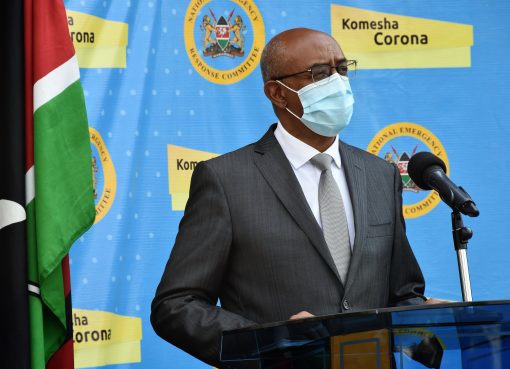Isiolo County has unveiled a strategy to transform the livestock sub-sector to manage grazing patterns, revamp veterinary and marketing services to enhance returns for pastoralists.
Stakeholders in the livestock sector are banking on guaranteeing higher productivity for pastoralists in the county through creation and regulation of grazing patterns, as well as streamlining the veterinary and market services.
Officials from the County government and those in non-governmental organizations (NGOs) undertaking livestock related programmes recommended in a meeting that policies to provide a framework within which all actors in the livestock sector will pull resources together for better service delivery to local pastoralists should be put in place as soon as possible.
The meeting was also attended by the representatives from the Association of Nomadic pastoralists where participants reviewed a detailed strategy and action plan under the chairmanship of the County Executive Committee Member in charge of livestock Mr. Mahmoud Hajj.
Mr. Hajj said that the policies have been aligned to the County Integrated Development Plan and the governor’s manifesto in order to ensure that it does not contradict any priorities regarding the sector.
He also noted that the action plan will help in resource mobilization bearing in mind that the County gets meager financial allocation annually from the national government.
The County director of veterinary services Dr. Joseph Githinji said that over the years, livestock farmers suffered whenever the dry season set in due to poor management of the grazing rangeland.
He said that the plan will contain the local herders by ensuring they strictly adhere to grazing patterns and make certain that enough pasture is reserved for use during hard times.
The veterinarian noted that watering points established for use specifically during the dry season will be closed for extended periods of the year and only re-opened whenever drought sets in.
“This plan is meant to keep herders off the reserved pasture areas,” he added.
Dr. Githinji said that the plan will also address the various challenges in the veterinary department such as shortage of trained personnel and equipment, adding that it will improve preparedness and response to livestock disease outbreaks.
“The strategic document will improve disease surveillance and control, improve local breeds, rangeland management and commercialization of livestock and their products as the plan proposes,” he said.
Merti Integrated Development Programme, (MID-P) executive director Mr. Abdullahi Shande said that both the national and county governments were not doing enough to improve the livestock sector.
He said that the sector accounts for at least 15% of the country’s Gross Domestic Product (GDP) but the government only invests 3% of national resources into the crucial sector.
Mr. Shande urged livestock owners especially those in far flung areas of the county to always cooperate with the veterinary officers by presenting their animals for vaccination whenever necessary, warning that failure of some herders to vaccinate their cattle which was a threat to those who adhere.
He called for continued partnership between the county government and non-government organizations to improve service delivery, especially livestock infrastructure such as crushes, water pans and proper markets.
By David Nduro




